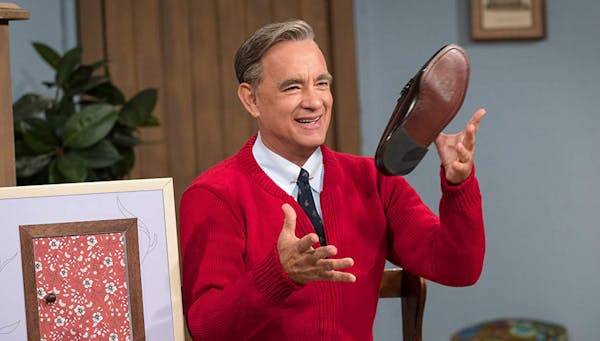There are 209 minutes in "The Irishman" and not one of them is wasted.
Any skepticism about the latest crime drama from director Martin Scorsese is understandable and, believe me, I was right there with you: Another mob epic? Featuring another Robert De Niro/Joe Pesci team-up? Made for the big screen but destined to be seen almost exclusively on small screens because it was funded by Netflix and is only briefly sneaking into theaters?
But then I saw the movie.
"The Irishman" should be seen on the big screen because it takes advantage of all the things a movie can do and because it'll work best if you surrender to its inventive storytelling, rather than hitting Netflix's "advance 10 seconds" button during slow scenes or chopping it into a three-part miniseries. There's a grandeur and scope to "Irishman" that earns its length, and for all of its flashback-within-flashback-within-flashback-within-flashback complications, Scorsese, his longtime editor Thelma Schoonmaker and screenwriter Steve Zaillian create an elegant structure that builds and builds.
The centerpiece of "The Irishman" is a lengthy sequence that works like a movie within a movie, depicting the murder of Al Pacino's Jimmy Hoffa by De Niro's Frank Sheeran. (The movie is based on an account of these events that has been disputed.) Occupying most of the last third of "The Irishman," the tense sequence comes on the heels of many scenes that have revealed the warm friendship between Hoffa and mob enforcer Sheeran, whose daughter Peggy (played as an adult by Anna Paquin) is a particular fan of Teamsters honcho Hoffa.
Sheeran's boss, Russ Bufalino (Pesci), also likes Hoffa, but he's the one who reluctantly gives the order to make him disappear. After the order is given, we follow Sheeran every step of the way, logging every detail and change of expression on his face, which is a mask of grief even before the deed is done. After, though? Stoic Frank watches Hoffa's corpse slide into a crematorium and matter-of-factly tells us, as if he's recalling what he had for dinner last night, "It was no more complicated than that."
The title character's expressions are crucial because he's the central mystery of "The Irishman," which becomes a movie about reaching the end of your life and realizing that every decision you made was wrong. The movie opens with Sheeran in a senior center, visited only by a young priest because everyone he ever cared about is either dead or done with him.
Frank's family is mostly in the background of his stories, which focus on his becoming a key player in the mob. But one crucial domestic sequence haunts the movie: Adolescent Peggy watches as her father beats the hell out of a grocer who disrespected her. Later, another of his daughters tells Frank that incident forever sealed him off from the rest of his frightened family, but he feels so little remorse that he's unsure how to respond to her.
One of the tricks of "The Irishman" is that its lead character is a cipher. We don't know what happened that robbed Frank of his moral compass, but Scorsese and De Niro make him a fascinating, toxic cipher. There are echoes of other antiheroes created by Scorsese and De Niro in "Raging Bull," "Casino" and "Mean Streets," but Frank may be the most frightening of them all because he seems to have no inner life whatsoever. Like Holocaust architect Adolf Eichmann, he's just following orders.
Two other reasons I was skeptical about "The Irishman" are the iffy technique that de-ages the three leads in flashbacks (the effect is not distractingly bad but sometimes their faces do look like pieces of wood that have been sanded) and that all three lead actors can get a little spitty for my taste. Here, though, their performances are expertly modulated. Pesci's Bufalino (no relation to the delicious bufalina pizza at Punch) calls the shots without ever raising his voice. There's a weird tenderness in scenes depicting his friendship with Sheeran and a gentle resignation in the way Bufalino responds when Peggy, whom he loves, disdains him. Pacino is the yeller in the movie, but his acting has so much wit and compassion that you can't help but like Hoffa.
The film's affection for its more-or-less-evil trio of characters sets it apart, because "The Irishman" feels more invested in their humanity than, say "Raging Bull" was in Jake LaMotta's. These people do horrible things and fall into the classic trap of choosing work over family, but in the end, they are stuck with their choices. They face the same loneliness and pain as everybody else.
When Sheeran and Bufalino are in jail toward the end of the movie and Bufalino is nearing death, he makes a quizzical remark about dying to Sheeran, who asks what he means.
"You'll see," Bufalino says.
And, of course, so will we all.
Chris Hewitt • 612-673-4367

The 5 best things our food writers ate this week

A Minnesota field guide to snow shovels: Which one's best?

Summer Camp Guide: Find your best ones here

Lowertown St. Paul losing another restaurant as Dark Horse announces closing

